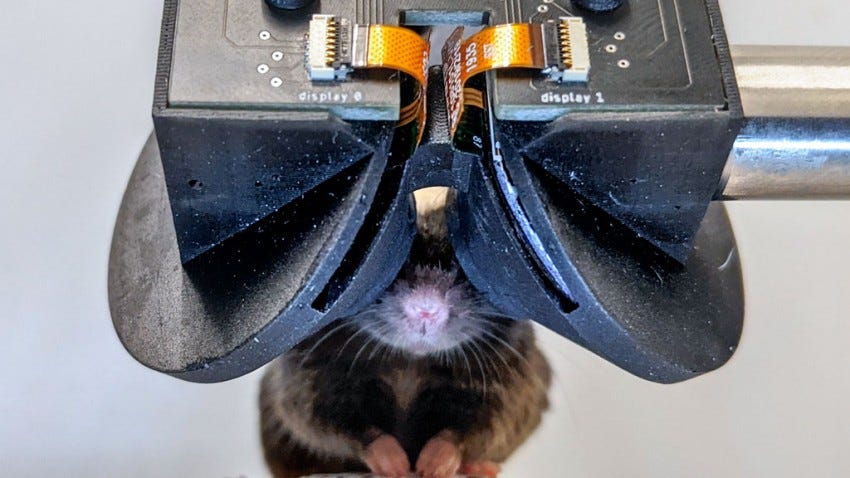When the going gets fake, the fakers turn pro
What's behind the growing industry of faking experiences? Why have many people lost the ability to live our actual lives?
You follow an Instagram influencer who posted video from a great seat at a fantastic concert. You wish you were there. But the influencer doesn’t. They’d rather you envy them for experiencing something they never experienced.
A growing social media trend of “fake flexing" services — where startups sell fake stories, pictures, videos, and tags from popular events so users can lie about having attended — has taken the influencer industry in a dark and disturbing direction.
Of course, Instagram was built on influencers who exaggerate or lie about their wealth, success, travels, or lifestyle on social media platforms.
At first, influencers staged luxury scenes, dressing up and posing in front of glamourous backgrounds.
Then, companies started renting locations — private planes that never leave the ground, fun-looking scenes designed not for fun but for photos, and others.
Now, companies are selling content that influencers can buy and claim they captured it.
Meanwhile, a new social media trend has emerged in China, where young, single women are taking maternity photos with fake baby bumps. Years later, when they’re married, older, and actually pregnant, they have what they believe are better-looking maternity photos to post.
Influencers do it for approval and validation. But it mainly makes followers feel like their own lives are inadequate, as their real lives are so much duller than the fake lives they see on social.
Even more pathetically, many influencers buy fake followers to pad their user accounts. Events and situations never experienced by the influencer are being posted for to non-existent users.
It’s related to the larger social media crisis gripping the world: People are doom-scrolling global crises all day, every day.
Even if they live in a quiet little town where everyone is nice, crime is low, and the birds are singing, millions of people live in a psychological world on fire, with humanity at each other’s throats. Attention-stealing algorithms create a picture of the world so gripping that it supersedes lived experience.
Social media has turned humanity into billions of pellet-seeking lab rodents. While spending time outdoors or with family and friends, millions of people feel the addictive pull of social media, which prevents them from being fully present in the real world.
We now stand on the brink of automating all of this. In 2025, the major platforms — especially Meta’s Instagram and Facebook — will increasingly perfect AI tools that enable us to place ourselves in any scene, fabricate any experience and even chit-chat with followers. It’s only a matter of time when the posts are fully automated, at which point it’s only a matter of more time before the posts continue after we die.
It’s the crisis of our lifetimes, where we offer up our best years as a sacrifice to the Gods of Surveillance Capitalism. We’re giving so much, and getting back so little.
So if you want a New Year’s Resolution, here’s a great one: Stop gawking at other people’s fake experiences and seek out actual experiences of your own!
Ignore Instagram, Facebook and TikTok. Instead, live and experience your actual life in the real world.
Emergent Technologies
A new study found that smartwatch bands from all major smartwatch makers — including products from Apple, Google, Fitbit, and Samsung contain high levels of toxic "forever chemicals" | Future AI war drones will be trained on a foundation of millions of hours of video collected from Ukraine battle drones | Cornell eggheads invented VR goggles for mice based on two smartwatch displays called MouseGoggles | Warren Buffet says AI-powered scams are “gonna be the growth industry of all time” | Google unveiled an AI experiment called Whisk, which generates AI images using photos, rather than words, as the prompts | A new study found that knowing one is under surveillance alters unconscious cognitive processes, such as visual perception and social awareness
More From Mike
Welcome to the Drone Age, New Jersey
Low-tech solutions to high-tech cybercrimes
This Week in Tech: "The Densest State in the US"
Why 2025 will be a bad year for remote work
Roundup: The top ransomware stories of 2024
Where’s Mike? Silicon Valley, California!
(Why I’m always traveling.)








What is your feeling people who substitute one word in a relatively famous quote (at least for those of us who grew up in the 60s) and does not attribute the source? I personally think they are worse than “influencers”.
I ask because you did that in the title of this post with a Hunter Thompson original.
And to think I learned to climb actual mountains- just so Joe Algorithm can pretend to have done the same thing. At least I got the exercise!